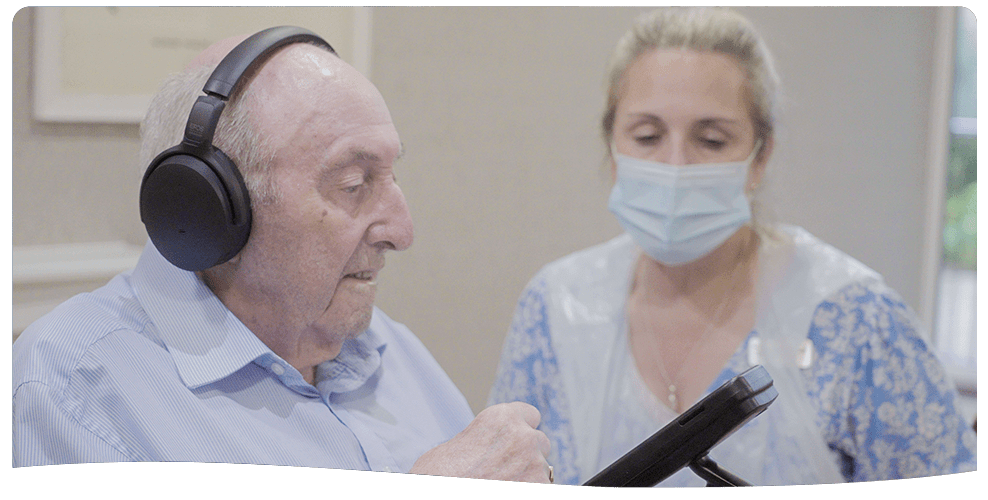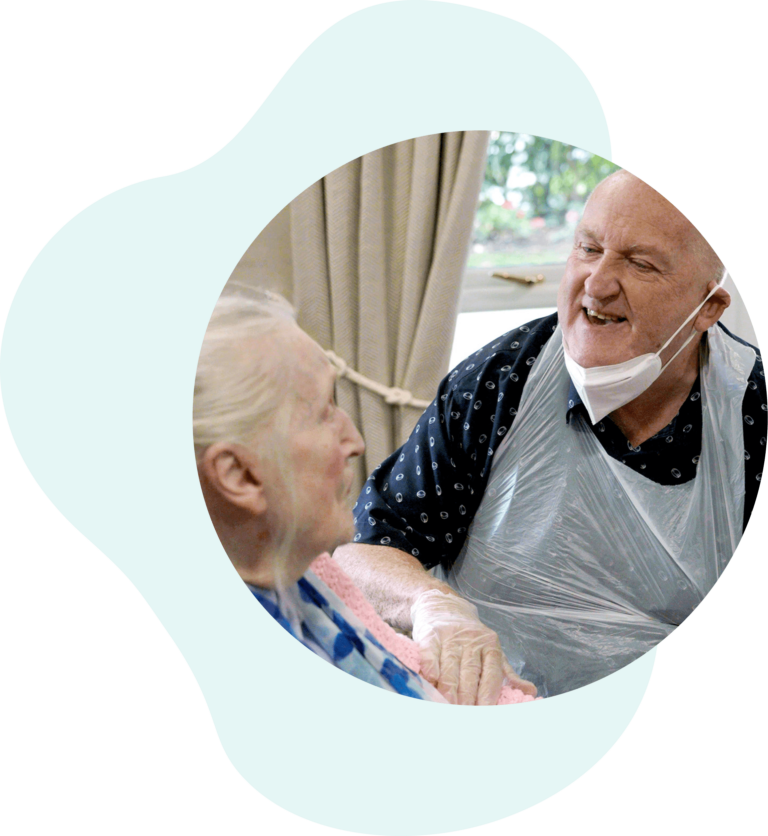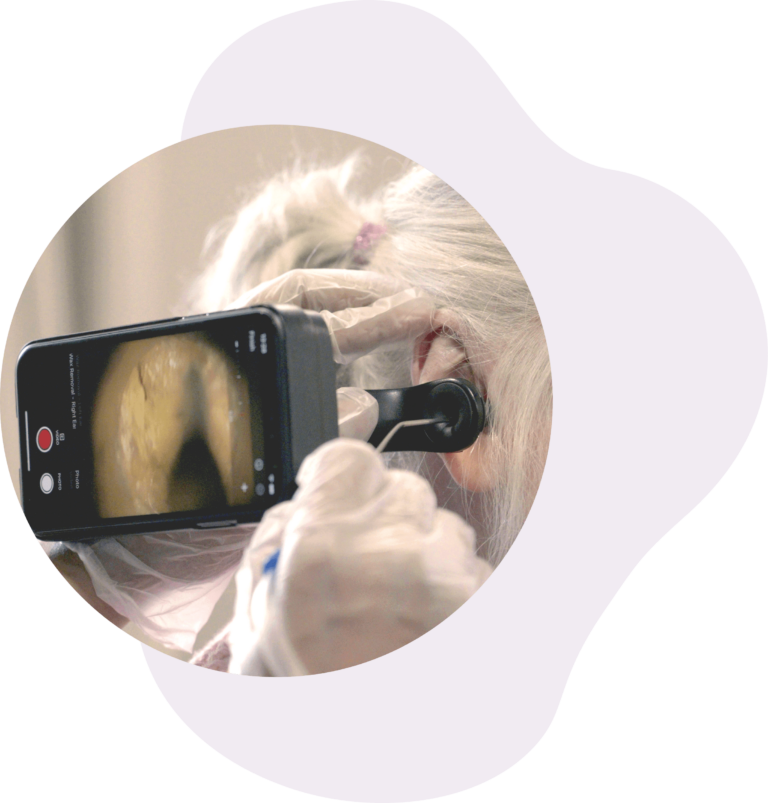
Many care homes across the country have residents who experience some form of hearing loss or use hearing aids. At Care UK, they identified 1,700 of their residents with these needs. On top of that, many of their residents had not had access to physical or hearing checks since March 2020, due to the coronavirus pandemic – something that is common across the care sector. 63.6% of people living in Care UK care homes live with dementia, and of all residents, 20.4% are deaf or wear hearing aids.7
When people face hearing problems, they often withdraw from social situations, isolating themselves from friends and family. Social isolation often causes depression, and both are factors for dementia.
Common symptoms or indicators/signs of hearing loss & dementia
- Having trouble on the phone
- Memory loss
- Finding it hard to follow conversation when two or more people are talking
- Difficulty concentrating
- Ask people to repeat what they are saying
- Find it difficult to carry out daily tasks
- Think people mumble
- Being confused about time and place
- Struggle to hear women and children
- Mood change
- Have a problem hearing people in places with high background noise
- Struggling to follow a conversation or to find the right word
- Need to turn the TV up

Addressing Residents Needs
After realising the lack of access to ear and hearing healthcare Suzanne Mumford – Care UK’s Head of Nursing Care and Dementia worked with the Queens Nursing Institute and their Community Nursing Innovation Programme to develop the ‘Hear Well’ project. 9
“We suddenly realised that none of our 9,000 residents had had their ears checked since the pandemic and perhaps for longer than that.8”
Suzanne Mumford, Care UK Head of Nursing Care and Dementia
The aim of the project was to identify if training nurses in otoscopy and ear wax removal could alleviate some of the challenges faced by residents with hearing problems in a way that was easy to replicate across Care UK.
Patient Centred Care
Working with TympaHealth to train one of their nurses at Milner House care home, they were able to see 47 residents over a three-month period of the Hear Well Project. Residents were first screened by their regular nurses in the familiar setting of the care home – helping to minimise both stress for the residents and reduce referral/ outpatients time and costs. 8

Evidence from the ‘Hear Well’ project shows an improvement in communication, socialisation, mobilisation, and general wellbeing for residents who had ear wax removal with microsuction. Of residents receiving wax removal, there has been an improvement in hearing and understanding. 8
There were also six instances where people were referred for hearing aids following otoscopy and hearing tests, which identified no wax but a hearing loss. The results from this simple intervention are less data-driven but seen more in quality-of-life outcomes, including improvement in lived experience, and a reduction in symptoms of cognitive decline and social isolation. 8
In 2023, Care UKs hear well project won the Nursing Times Social Care Award.
The Nursing Times judges were impressed by the project’s approach to identifying unmet needs, promoting wellbeing, reducing social isolation, improving relationships, and increasing social engagement.

Overall, the quality of life of people living with dementia was improved, reducing the need for health appointments and hospital admissions. The judges believe the use of this technology could lead to far-reaching improvements for those in social care.
Benefits to the residents and their loved ones:
- Improved hearing resulted in greater social interaction and therefore less social isolation.
- Improved hearing and engagement
- Fewer distressed and agitated behaviours
- Reduction in the use of psychotropic drugs for agitation.
- Trips and falls reduced.
It’s clear to see that there is a problem with access to ear and hearing care within the care sector with multiple pressures on resources and time. The Hear Well Project shows that through innovation and delivering ear and hearing healthcare in the safety and comfort of the care home, residents’ quality of life is improved but more than that care homes reduce outpatient costs associated with referrals and have better communication with residents.
Fill in the contact form below and one of our team will talk you through how your care home can benefit from offering TympaHealth ear and hearing healthcare services.

